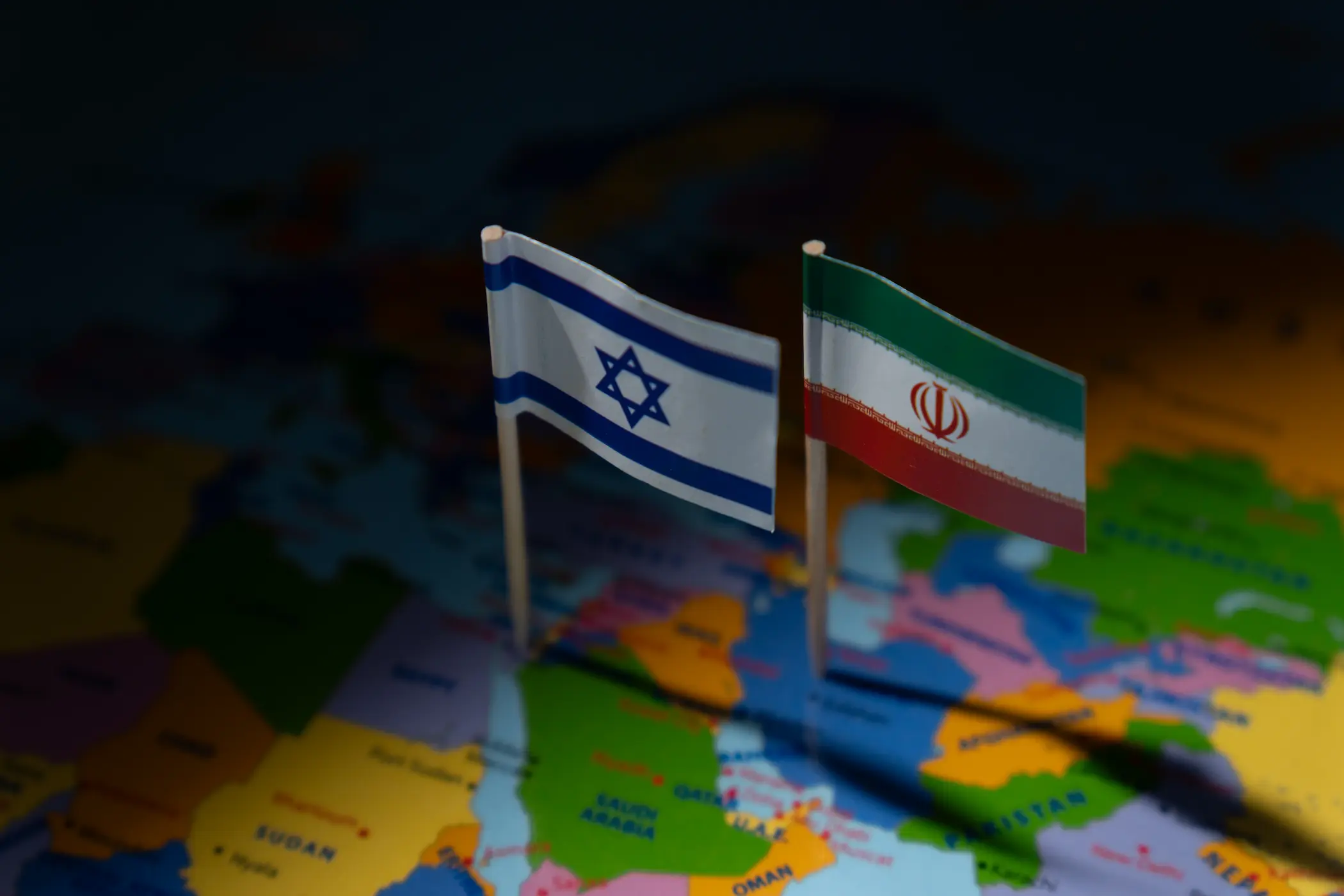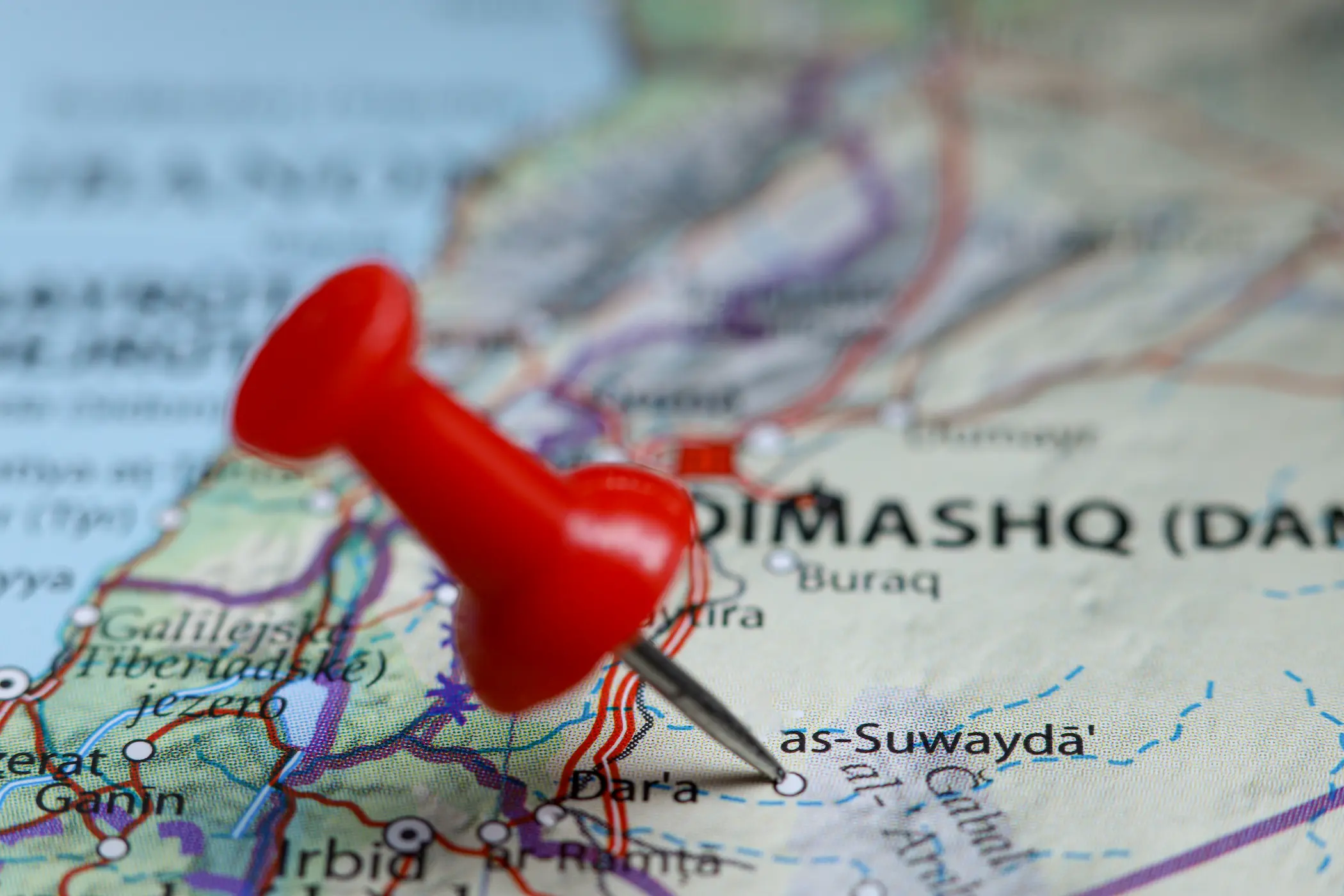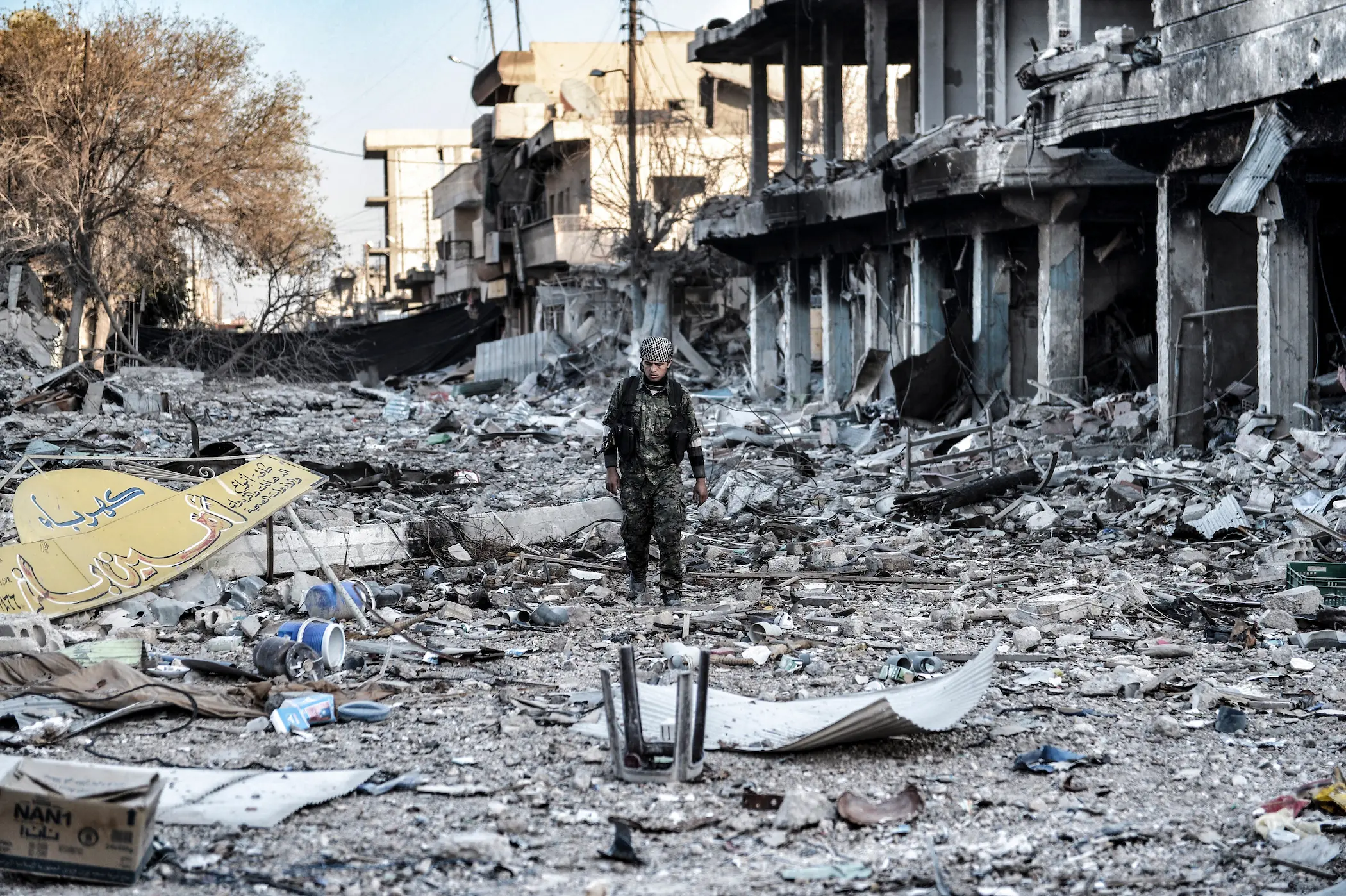18 Sep 2025
The War of June 2025: A Clash of Civilisations or a Catalyst for a New Middle East?
As many regional and global powers rush to reshape the Middle East to serve their strategic interests, the past two years have been marked by a cascade of transformative and often tumultuous events. These include the Israeli army’s large-scale invasion of the Gaza Strip following October 7, efforts to diminish Hezbollah’s influence in Lebanon, the fall of the Assad regime in Syria, intensifying Israeli military operations against Iran, and most recently, a wave of Western countries intending to formally recognise a Palestinian state alongside Israel’s announcement of plans for the annexation of the West Bank and a comprehensive occupation of the Gaza Strip.
Together, these rapid developments not only underscore deepening conflict and instability but also actively fuel the emerging discourse about the "New Middle East", a strategic framework envisioned by key actors outside of the region that seeks to redefine the geopolitical, security, economic, and diplomatic order of the region. The intertwining of hard power manoeuvres, shifting alliances, and economic realignments signals a significant recalibration rather than a mere continuation of the status quo.
In 2025, the potential rise in Western recognition of Palestinian statehood reflects growing international dissatisfaction with existing diplomatic frameworks and a push to rethink longstanding regional issues, directly challenging Israel’s traditional security and diplomatic calculus. Concurrently, Israel’s authorised military plan to take full control of Gaza exemplifies a decisive shift toward hardening its territorial and security posture, marking an unprecedented phase in Israeli-Palestinian relations and regional politics.
The confluence of these developments amplifies the narratives and policies underpinning the New Middle East: a vision premised on assertive state-centric realignments, expanded normalisation efforts, a recalibrated balance of power, and an economy-driven model of regional transactions. This evolving order encompasses ambitions to diminish Iranian influence, redefine Palestinian sovereignty on new terms, and facilitate deeper economic and security integration among select regional actors.
Ultimately, these events serve both as catalysts and manifestations of the "New Middle East" discourse. They reflect a region in flux where entrenched conflicts and new diplomatic initiatives are simultaneously eroding old paradigms and opening pathways for a fundamentally restructured Middle Eastern landscape.
This paper critically explores how the recent rapid developments in the Middle East contribute to shaping competing visions of the region’s future. It assesses whether the ongoing transformations reflect a deeper realignment driven by strategic state interests, expanding economic interdependence, and a recalibrated regional order that transcends historical cycles of conflict. Specifically, the analysis considers if these changes primarily illustrate Samuel Huntington’s "Clash of Civilisations" thesis—attributing post-Cold War regional conflicts to cultural and religious identity divisions—or if they instead represent a deliberate and calculated strategic effort to "reshape the Middle East" through redefined state priorities, shifting power dynamics, and newly forged regional and international alliances.
23 Jul 2025
Could As-Suwayda Reshape the Calculations of the Syrian Democratic Forces?
With the fall of Bashar al-Assad's regime in December 2024, Syria entered a pivotal political turning point, ushering the country into a new phase. Ahmad al-Sharaa assumed the role of interim president, and this transitional period has been defined by intense efforts to restore security and stability, unify the divided armed factions, and address the growing humanitarian needs nationwide. Against this shifting backdrop, the southern governorate of As-Suwayda, home to a Druze majority, emerged as a strategic hot spot of tension. Recent military developments in the region have taken on significant dimensions, potentially impacting the future of the Syrian Democratic Forces (SDF) in the country's northeast.
17 Jul 2025
What If: As-Suwayda Sought Independence?
As-Suwayda has emerged as a profoundly complex arena amid the sweeping transformations reshaping Syria following the fall of the Assad regime and the formation of a new centralized transitional government. Within this volatile context, calls for self-determination from segments of the local Druze community have gained traction.
There are four critical fault lines worth exploring: the acute internal fragmentation of the Druze polity; the ideological and constitutional dissonance between local autonomy demands and the centralized architecture of the new Syrian state; the near-total economic collapse of the province; and the intensity of regional entanglement that constrains meaningful sovereignty.
19 May 2025
What Does the Lifting of U.S. Sanctions Mean for Syria?
The United States started putting sanctions on Syria as early as 1979, mostly because Syria was labelled as a State Sponsor of Terrorism (SST). The first designation was based on Syria's military occupation of Lebanon and its support for groups like Hezbollah that the government paid for. This early policy took a harsh and threatening stance against a government that was seen as hostile and supportive of non-state actors that were seen as a threat to U.S. interests.
After the Syrian conflict started in 2011, the U.S. greatly increased its sanctions against the Assad government. The goal of these more extensive measures was to stop the Syrian government from using violence against its people and to encourage political changes that could get to the bottom of the conflict. This was a big change from only focussing on counter-terrorism to a wider agenda that included human rights and changing the behaviour of the regime, with some elements of coercive diplomacy.
The end of Bashar al-Assad's rule in early December 2024 marks a major change in Syria's politics. This event changed the main goal of the long-standing U.S. sanctions, which were mostly aimed at the now-deposed government.
In May 2025, during a trip to Saudi Arabia, U.S. President Donald Trump made a big announcement: he would lift sanctions on Syria. He said this would "give them a chance at greatness." Many people see this announcement as a "historic development" that has "major potential to improve living conditions" and "support the Syrian political transition." The goal is to make the area more stable and improve Syria's economic prospects after years of being held back by harsh international sanctions. This paper looks at the United States' sanctions against Syria in depth, putting the recent change in policy in the context of its history and the law.
18 May 2025
A New Regional Committee to Fight ISIS
In March 2025, Turkey, Syria, Jordan, Lebanon, and Iraq agreed to create a joint committee to fight the Islamic State of Iraq and Syria (ISIS). While this committee reflects the desire of regional countries to take lead in deterring regional security threats, it also motivates the United States to withdraw its forces from Syria, giving more space to the new formed committee to fight ISIS. Moreover, the newly formed committee could serve as an alternative to the U.S.-led international coalition that was established in September 2014 to counter ISIS and curb its spread in Syria and Iraq.
While the coalition was instrumental in weakening the group, mainly through airstrikes and by supporting Kurdish armed factions on the ground, it now appears that regional actors are stepping in to lead the next phase of counterterrorism efforts.
24 Apr 2025
Divergent Agendas: Turkey and Israel in Syria
The Syrian Civil War transformed Syria into a battleground for regional powers seeking to advance their strategic interests. Among these powers, Turkey and Israel have emerged as pivotal actors, each pursuing distinct objectives that often clash, exacerbating instability in Syria. While Turkey’s ambitions in Syria are driven by consolidating the authority of the new regime in Syria to dissolve and disarm Kurdish armed groups, Israel emphasises supporting the Druze in the south of Syria and the Kurdish groups in the east of Syria to limit the functionality of the new Syrian government. Israel has also other strategic interests in Syria, such as countering Iranian influence and establishing buffer zones in southern Syria to separate Syrian forces from the Israeli-occupied Golan Heights.
13 Mar 2025
Silent Annexation: The Fate of Southern Syria
Caught in the crosscurrents of escalating regional and international rivalries, and witnessing an increasingly assertive Israeli presence, Southern Syria stands at a critical juncture. Ambiguity hangs heavy in the air, obscuring the long-term trajectory of a land grappling with fractured governance, demographic shifts, and the looming threat of further fragmentation. As international and regional actors jostle for influence and advantage, Israel's expansionist ambitions in the south proceed with a disconcerting sense of ease, guided by a methodical strategy and far-reaching objectives. This expansion, however, is not merely territorial; it is reshaping the very fabric of Southern Syria, impacting its social and demographic tapestry, and transforming it into a volatile arena for regional proxy conflicts. Meanwhile, the Syrian state, nominally in Damascus, grapples with deep-seated internal divisions and a diminished capacity to exert meaningful control, potentially paving the way for negative scenarios that threaten the nation's already fragile unity and sovereignty. This analysis aims to dissect these complex transformations, illuminating Israel’s calculated strategy, assessing the internal vulnerabilities of Syria, and anticipating the potential risks that lie ahead for this strategically vital, yet increasingly precarious, region.
4 Mar 2025
A Troubled Chain of Command: Politics and the IDF
The appointment of Major General Eyal Zamir to the helm of the Israeli Army, will take office on March 6, transcends a routine leadership transition. It portends a potential strategic recalibration in Israeli military thinking, responding to evolving threats and perceived doctrinal vulnerabilities. Lauded across Israel's political spectrum as the right leader for these turbulent times, Zamir inherits a complex and precarious landscape. He is tasked with revitalizing an army perceived as "faltering," navigating a potentially obstructive political environment, and addressing a volatile region simmering with unresolved conflicts. Adding to the weight on his shoulders is the historical baggage he carries in the eyes of Palestinians, for whom his name evokes memories of harsh measures during past uprisings and operations. This analysis delves into the implications of Zamir's appointment, the delicate dance between political leadership and military autonomy in Israel, the anticipated doctrinal shifts under his command, and the spectre of looming confrontations on multiple fronts.
10 Feb 2025
Turkey and Iran: Commonalities and Contradictions
Following the Arab Spring, Turkey and Iran started expanding their influence in the region, utilising the state of instability. While both countries compete over expanding influence in Syria, Iraq, and Azerbaijan, they managed to maintain strong mutual relations. The analysis examines foreign policy tools employed by both countries to maximise their benefits along with analysing the commonalities and differentiation of interests between them in the Middle East.
6 Feb 2025
Will Israel Suceed in Dissolving UNRWA During Trump’s Second Term?
In a significant escalatory move, Israel’s Ambassador to the United Nations, Danny Danon, has notified the UN Secretary-General in writing that UNRWA must cease its operations and vacate its premises by January 30, 2025. This ultimatum follows Israel’s enactment of a law last October banning the agency’s activities within its territory, including occupied East Jerusalem. The decision is rooted in Israel’s allegations that UNRWA has been infiltrated by Hamas, with claims that some of its employees were involved in the Oct. 7, 2023, attacks.
This paper examines the evolving and contentious relationship between Israel and UNRWA. It also explores potential U.S. intentions to dismantle the agency, particularly in light of Donald Trump’s return to power and his recent remarks regarding the displacement of Gaza’s population and the repercussions of this ban.
25 Dec 2024
From Displacement to Development: Syria’s Path to Reintegration
With millions of people displaced, massive destruction, and the destruction of entire businesses, the Syrian Civil War wreaked chaos on the country’s economy since it started in 2011, and whilesome countries have started to discuss deportation policies, many refugees started to return home in the hopes of rebuilding their country after the fall of the Assad regime. While the repatriation of refugees holds the promise of economic revitalisation, the multifaceted challenges of reintegration and rebuilding complicate the picture. Hence, a gradual reintegration policy under certain conditions, including international support especially from countries hosting the refugees is required to foster sustainable recovery.
25 Dec 2024
From Lebanon to Syria: How Did the Syrian Civil War Reshape Hezbollah’s Military?
Hezbollah's involvement in the Syrian Civil War has significantly bolstered its military capabilities and strategic positioning against Israel. The war served as an invaluable training ground, providing Hezbollah fighters with extensive combat experience and allowing them to test and refine their tactics in real-world scenarios. This experience proved crucial in enhancing their proficiency in asymmetric warfare, a critical aspect of their confrontations with the technologically superior Israeli military.
Furthermore, the Syrian conflict solidified Hezbollah's alliance with Iran, which provided vital military support and resources. This included advanced weaponry, training, and logistical assistance, significantly enhancing Hezbollah's operational readiness. Iran's backing also enabled Hezbollah to establish a stronger presence in the region, providing strategic depth and allowing it to operate more effectively against Israel while countering Israeli influence in Lebanon and the broader Levant.
The war also forced Hezbollah to adapt and evolve its military doctrine. The group adopted more sophisticated tactics, incorporating urban warfare strategies and integrating advanced technologies like drones and precision-guided munitions. These innovations, born out of necessity on the Syrian battlefield, have better equipped Hezbollah to counter Israel's military advantages. Moreover, the prolonged conflict forced Hezbollah to develop sophisticated logistical and operational planning capabilities, including a robust supply chain that can withstand Israeli disruptions.
On the other hand, this intervention led to the exposure of the party and made it vulnerable to infiltration, which caused the party to lose its hard power against Israel and its soft power within Lebanon.











